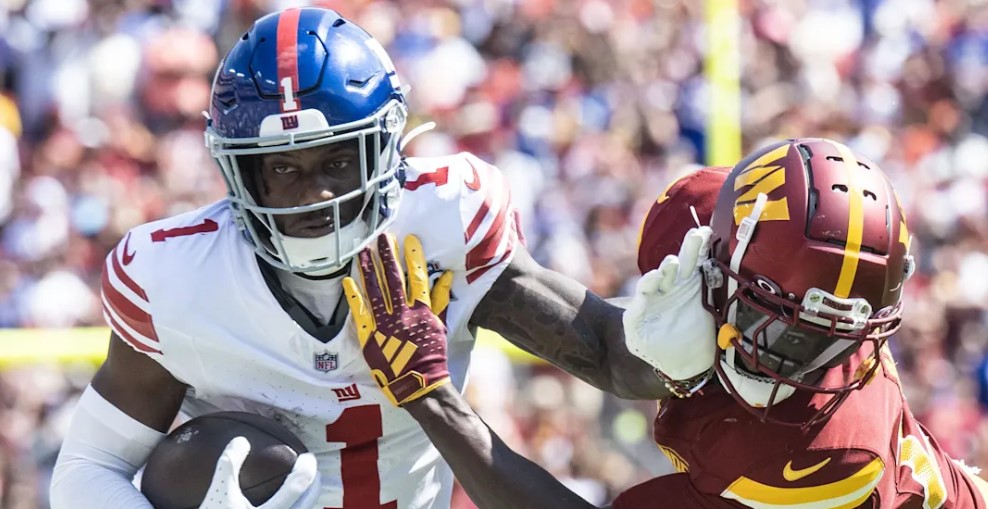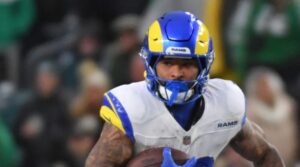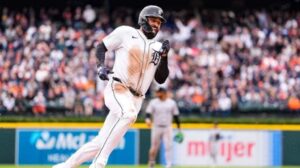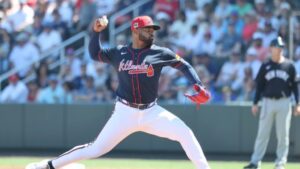
The Washington Commanders are well aware of the damage Malik Nabers can cause, especially after his standout performance in their Week 2 matchup when he recorded 10 catches for 127 yards and a touchdown. Although the Commanders secured a win at Northwest Stadium during that encounter, they cannot afford to let Nabers have a similar impact in their Week 9 rematch. Head coach Dan Quinn and defensive coordinator Joe Whitt Jr. must devise a game plan inspired by how other NFL teams are containing Nabers, who has quickly established himself as a top-tier receiver.
A key strategy for the Commanders will be doubling Nabers on nearly every play. This means consistently assigning extra coverage to the young wideout, who has begun facing regular bracket coverage, a tactic he finds challenging, according to ESPN’s Jordan Raanan. Effective double coverage can be more complex than just pressing a cornerback at the line with a safety positioned behind. It involves variations, such as having a corner play off while a safety or linebacker undercuts Nabers’ route. Incorporating different coverage schemes—like half-field responsibilities involving three defenders—will keep Nabers guessing. This approach is essential, especially since the Giants, even without Saquon Barkley, still pose a rushing threat with rookie running back Tyrone Tracy Jr.
Beyond double coverage, the Commanders need to control where Nabers operates on the field, particularly redirecting him away from the middle. Nabers has been extremely effective in intermediate routes and between the numbers, averaging 6.9 yards before catch per reception and racking up 179 yards after catch this season. The Commanders’ game plan should aim to push Nabers toward the perimeter since Giants quarterback Daniel Jones has shown inconsistency throwing outside the numbers. Forcing Nabers to the sideline can narrow the available space and limit Jones’ ability to complete passes to him.
To execute this effectively, cornerbacks Benjamin St-Juste, Noah Igbinoghene, and rookie Mike Sainristil need to maintain inside leverage, pushing Nabers to their outside shoulders. A safety positioned over the top can then press the sideline and minimize the open throwing window. An alternative strategy involves using an inverted bracket, where the cornerback plays deep, and a safety rotates down to cover Nabers. This approach could discourage Jones from making risky outside throws, ultimately impacting how often he targets Nabers early in the game.
A critical detail for the Commanders to consider is Nabers’ tendency to be highly active on first downs, where he has secured 17 of his 46 receptions this season. Forcing him to delay his involvement and disrupt his rhythm can lead to frustration and compel the Giants to force plays, which may result in mistakes. By limiting Nabers’ opportunities and making the Giants’ passing game more predictable, the Commanders can tilt the matchup in their favor.
Overall, a multi-faceted defensive strategy combining double coverage, varied looks, and a focus on pushing Nabers away from his comfort zones will be vital for the Commanders as they aim to neutralize the Giants’ top offensive weapon and secure a Week 9 victory.





